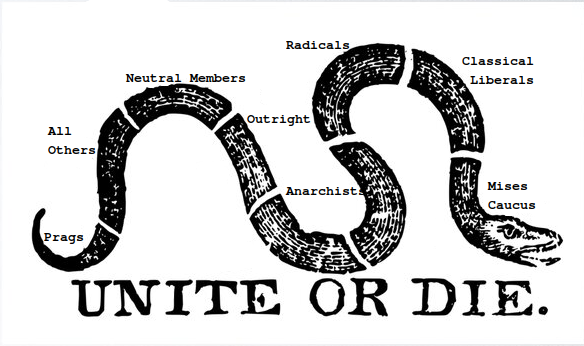In the realm of American politics, the Libertarian Party stands as a beacon of individual liberty, limited government, and personal responsibility. However, recent years have witnessed internal strife and division that threaten to undermine the very foundation upon which the party was built. The rise of the Mises Caucus as the dominant faction within the Libertarian Party has led to a troubling trend of infighting and exclusion, ultimately jeopardizing the party’s future viability.
The Mises Caucus, while advocating for a principled libertarian approach rooted in Austrian economics and paleolibertarianism, has pursued a strategy of dominance rather than unity. This approach, marked by a quest for control over all other factions, has alienated many within the party and contributed to a sense of disillusionment among members. The consequences of this power struggle have been dire, with the party experiencing a decline in both membership and influence.
Inexperience and internal discord have further exacerbated the Libertarian Party’s predicament since the Mises Caucus takeover. The lack of effective leadership capable of fostering cooperation and dialogue among various factions has only served to deepen existing rifts. As a result, state affiliates have splintered off, further fragmenting the party and weakening its collective voice in the political arena.

To reverse this downward spiral, immediate action is imperative. The Libertarian Party must embark on a path of reconciliation and inclusivity, welcoming back all members who have been marginalized or sidelined. This requires a concerted effort to engage in meaningful dialogue and bridge the divides that have torn the party asunder.
Leadership within the Libertarian Party must take proactive steps to reach out to state affiliates and initiate discussions aimed at reunification. Rather than perpetuating a culture of exclusion, efforts should be made to collaborations between disparate factions. By fostering a spirit of unity and cooperation, the party can begin to rebuild its strength and relevance in the political landscape.
Moreover, the Libertarian Party must reaffirm its commitment to its core principles while embracing diversity of thought within its ranks. A pluralistic approach that respects differing perspectives and values individual autonomy is essential to revitalizing the party and attracting a broader base of support.
In conclusion, the future of the Libertarian Party hinges on its ability to unite and overcome the divisions that threaten to tear it apart. The Mises Caucus, while influential, must recognize the importance of collaboration and compromise in building a resilient and enduring political movement. Only through a concerted effort to heal internal rifts and embrace inclusivity can the Libertarian Party reclaim its position as a potent force for liberty and limited government. Failure to do so will only hasten its decline and eventual demise as a viable political entity. It’s time for the Libertarian Party to come together as one, or risk fading into obscurity.
